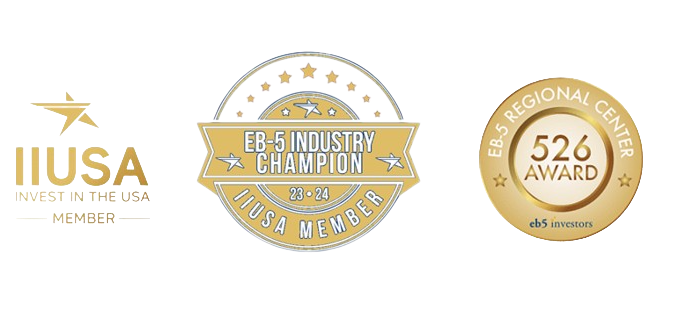- What is the EB-5 Immigrant Investor Program?
- What are the benefits of the Green Card?
- Who is eligible to receive permanent residency (Green Card)?
- Are EB-5 visas available to persons from any country in the world?
- Where can I find copies of relevant forms, laws, and regulations to study?
- What is the difference between a “conditional” and a “permanent” Green Card?
- What issue typically causes the most problems when applying for an EB-5 visa?
- How long must I remain in the United States each year?
- What is the difference between permanent residency and citizenship?
- What’s the best way to lower risk in an EB-5 Investment?
- What is a New Commercial Enterprise (NCE)?
- What is a Job Creating Entity (JCE)?
- What is visa retrogression?
- What are “Reserved EB-5 Visas” or “Set-Asides”?
- What are “Unreserved” EB-5 Visas?
- What is the Sustainment Period?
- What are the steps for processing an EB-5 visa application?
- If my I-526E petition is approved by the USCIS, what is the purpose of the Consulate application and interview, and how soon do I get my Green Card?
- After petition approval, can members of the family interview in different countries?
- What is an “escrow” account and when does the investor transfer the money into this account?
- How does the bank escrow account protect me against the risk of losing my money?
- What is Concurrent Filing for I-485 Adjustment of Status and how does it benefit EB-5 Investors?
- Who is eligible for Concurrent Filing?
- When can I apply for US citizenship?
- Do investors need to be actively involved in the day-to-day activities of Regional Center Projects?
- What are the advantages of investing in a rural project in a Micropolitan Area?
- May I invest less capital in a Targeted Employment Area (TEA) Project?
- Do I have to live where the project is?
- Can I make money with my EB-5 Investment?
- How is the EB-5 loan model different than the equity model?
- What is the minimum required amount of capital to be invested in order to apply for an EB-5 visa?
- Must I have previous business experience or education?
- Must I speak English?
- What is meant by the requirement that the investor’s assets be “lawfully gained”?
- If I want to move to the United States and invest in an EB-5 project with Houston EB5 Regional Center, do I have to live in Texas?
- Can an EB-5 investor from a retrogressed country apply for Concurrent Filing?
- How many direct and indirect jobs do I need?
- Can I travel outside the US for extended periods after I get my green card?
- What is a Regional Center and what advantages do they offer to EB-5 investors?
- Who should invest in an EB-5 Regional Center project?
- What are Indirect and Induced Jobs?
- Why is Job Creation safer with a Regional Center Project?
- Do I get faster Processing of my I-526E Immigrant Petition if I invest in a Regional Center project?
- What makes Houston EB5 unique?
What is the difference between permanent residency and citizenship?
From the first day you become an EB-5 Green Card holder, you have most of the rights and obligations of U.S. citizens, except that you cannot vote and hold certain public offices. You may live anywhere in the U.S. permanently and get access to the U.S. Social Security system. Holding a Green Card allows your children to take advantage of educational opportunities in the U.S., potentially qualifying for lower in-state tuition at public universities and favorable admissions processes. As an EB-5 green card holder, you have the liberty to be employed by any company or to start your own business without needing additional work permits or sponsorships. You may travel abroad but need to keep in mind that extended absences for over 6 months may raise questions about your immigration intention.
One of the most important rights Legal Permanent Residents (LPR) possess is the right to apply for U.S. Citizenship after residing in the United States for five (5) years, including the 2 years of your Conditional Permanent Residency (CPR). To apply for citizenship, you must maintain a physical presence for a minimum of 30 months during the 5 years preceding your application for naturalization.
Applying for U.S. citizenship, while not mandatory for Legal Permanent Residents (LPRs), offers considerable advantages. Key among these is that citizenship allows for a broader scope of family reunification, enabling U.S. citizens to petition for immigration of extended family members like parents, siblings, and married adult children, which is a privilege not extended to LPRs. Once you become a U.S. citizen, you can live abroad without fear of losing your U.S. citizenship. Your children, even if born abroad, will be considered U.S. citizens. You will also have the right to vote, hold public office and work for the U.S. federal government.

